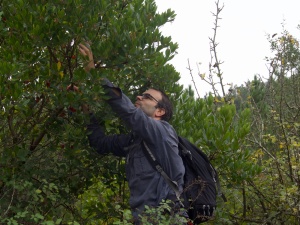Navarro, J., Nevado, B., Hernandez, P., Vera, G. & Ramos-Onsins, S. E. (2017) Optimized next-generation sequencing genotype-haplotype calling for genome variability analysis.
Evolutionary Bioinformatics,
13, 1-11. DOI:10.1177/1176934317723884 (IF2017 1,877; Q4 Evolutionary Biology)
NON-cE3c affiliated
The accurate estimation of nucleotide variability using next-generation sequencing data is challenged by the high number of sequencing errors produced by new sequencing technologies, especially for nonmodel species, where reference sequences may not be available and the read depth may be low due to limited budgets. The most popular single-nucleotide polymorphism (SNP) callers are designed to obtain a high SNP recovery and low false discovery rate but are not designed to account appropriately the frequency of the variants. Instead, algorithms designed to account for the frequency of SNPs give precise results for estimating the levels and the patterns of variability. These algorithms are focused on the unbiased estimation of the variability and not on the high recovery of SNPs. Here, we implemented a fast and optimized parallel algorithm that includes the method developed by Roesti et al and Lynch, which estimates the genotype of each individual at each site, considering the possibility to call both bases from the genotype, a single one or none. This algorithm does not consider the reference and therefore is independent of biases related to the reference nucleotide specified. The pipeline starts from a BAM file converted to pileup or mpileup format and the software outputs a FASTA file. The new program not only reduces the running times but also, given the improved use of resources, it allows its usage with smaller computers and large parallel computers, expanding its benefits to a wider range of researchers. The output file can be analyzed using software for population genetics analysis, such as the R library PopGenome, the software VariScan, and the program mstatspop for analysis considering positions with missing data.

